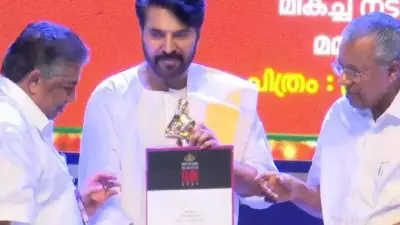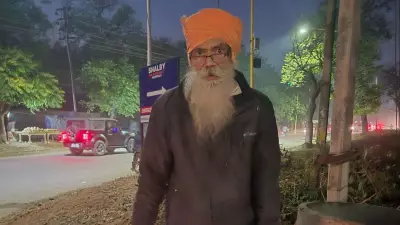
As the film world prepares to commemorate the 100th birth anniversary of Ritwik Ghatak this November, the legacy of this cinematic revolutionary burns brighter than ever. Born in 1925 in Dhaka, now Bangladesh, Ghatak emerged as one of Indian cinema's most original and uncompromising voices, whose work continues to resonate with audiences and filmmakers decades after his untimely death in 1976.
The Partition's Pain: The Heartbeat of Ghatak's Cinema
Ghatak's films were deeply personal responses to the trauma of Partition, which displaced millions including his own family. This cataclysmic event became the central theme of his celebrated 'Partition Trilogy' - Meghe Dhaka Tara (1960), Komal Gandhar (1961), and Subarnarekha (1962). Through these works, he didn't just tell stories of displacement; he captured the profound psychological and cultural devastation that defined a generation.
A Cinematic Innovator Ahead of His Time
What set Ghatak apart was his revolutionary approach to filmmaking. He masterfully employed:
- Powerful soundscapes that became characters in their own right
- Non-linear narratives that challenged conventional storytelling
- Mythological references interwoven with contemporary social commentary
- Experimental editing techniques that created emotional landscapes
His 1973 film Jukti Takko Aar Gappo stands as a stunning autobiographical masterpiece, featuring Ghatak himself as an alcoholic intellectual navigating post-war Bengal.
The FTII Years: Mentoring Future Legends
Ghatak's influence extended beyond his own films during his tumultuous tenure at the Film and Television Institute of India (FTII). Despite frequent clashes with administration, he mentored a generation of filmmakers who would shape Indian cinema, including the legendary Mani Kaul and Kumar Shahani. His teaching philosophy emphasized breaking rules and finding one's unique cinematic voice.
A Complex Legacy: The Rebel Who Challenged Everything
Unlike his contemporaries Satyajit Ray and Mrinal Sen, Ghatak operated outside established systems, often clashing with producers and institutions. His life was marked by personal demons, including alcoholism and mental health struggles, which he channeled into his art with raw honesty. Yet through all his challenges, he produced some of Indian cinema's most emotionally powerful and technically innovative works.
Why Ghatak Matters More Than Ever Today
As we approach his centenary, Ghatak's films feel remarkably contemporary. His exploration of displacement, identity crisis, and cultural fragmentation speaks directly to our globalized world. Modern filmmakers continue to draw inspiration from his fearless experimentation and emotional intensity.
Film scholar and screenwriter Aniruddha Bhattacharjee notes, "Ghatak taught us that cinema isn't just about telling stories—it's about creating experiences that shake the viewer's soul. His work remains essential viewing for anyone who believes in cinema's transformative power."
From international film festivals to university curricula, Ghatak's legacy continues to grow, proving that true artistry transcends time and trends. As the centenary celebrations unfold worldwide, this cinematic rebel's voice rings clearer than ever—a testament to the enduring power of visionary filmmaking.





